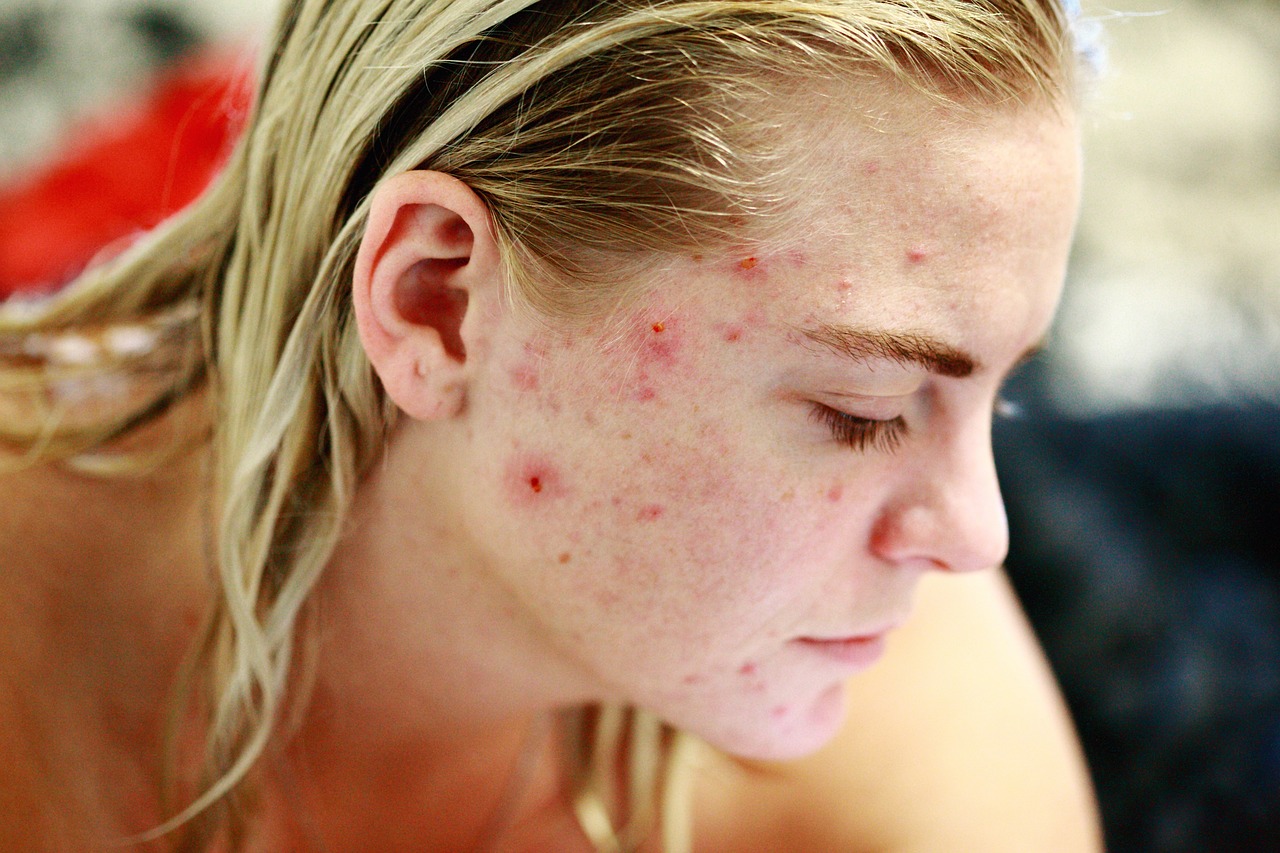- 1. Understanding Acne and Its Causes
- 2. The Link Between Stress and Acne
- 3. Biological Responses: Why Stress Leads to Breakouts
- 4. Common Areas for Stress-Induced Acne
- 5. Lifestyle Adjustments to Manage Stress and Acne
- 6. Effective Skincare Routine for Stress-Related Acne
- 7. When to Seek Professional Help
- 8. Final Thoughts on Managing Stress and Acne
The connection between stress and acne isn’t just a coincidence. Research reveals that stress hormones, which surge during tense times, can disrupt your skin’s balance, leading to those dreaded breakouts. But why does stress have such a powerful impact on our skin? And, more importantly, how can we keep stress-induced acne at bay without adding more tension to our lives?
In this article, we’ll check the science behind why stress aggravates acne, explore the biological reactions at play, and uncover practical strategies to help you protect your skin—even when life gets chaotic. Whether you’re looking for stress-management tips, skincare advice, or a better understanding of the mind-skin connection, this guide is here to help you break the cycle and keep your skin clear and calm.
1. Understanding Acne and Its Causes
Acne is a common skin condition that occurs when hair follicles become clogged with oil, dead skin cells, and sometimes bacteria. It can manifest as blackheads, whiteheads, pimples, or cysts. While acne is often associated with teenagers due to hormonal changes, people of all ages can experience it. Key causes of acne include:
- Hormonal Fluctuations: Especially common during puberty, menstruation, and pregnancy.
- Genetics: A family history of acne can increase susceptibility.
- Diet: Some research suggests that high glycemic diets and dairy may aggravate acne.
- Medications: Certain medications, including corticosteroids and androgen hormones, can cause acne.
Though these factors are well-known, stress has recently gained attention as a significant contributor to acne flare-ups.
2. The Link Between Stress and Acne
Research shows that stress exacerbates acne, making existing breakouts worse and potentially triggering new ones. A study published in Acta Dermato-Venereologica found that adolescents experienced worsened acne symptoms during stressful exam periods, which highlights how stress can increase acne severity.
Stress affects the body holistically, influencing various physiological processes. When we experience stress, our body releases several hormones, most notably cortisol and adrenaline. While these hormones help us handle immediate challenges, their long-term effects can be damaging, particularly for skin health.
3. Biological Responses: Why Stress Leads to Breakouts
Stress-induced acne is closely tied to the body’s hormone production. Here’s a breakdown of how stress triggers acne:
- Increased Oil Production: Stress stimulates the adrenal glands to produce more cortisol, which, in turn, increases oil production in the skin. Excess oil can clog pores, creating a perfect environment for acne-causing bacteria.
- Inflammatory Response: Chronic stress triggers an inflammatory response, which can aggravate skin conditions, including acne. Inflammation is a key factor in cystic acne and can make pimples more red and painful.
- Reduced Immune Function: Stress weakens the immune system, making it harder for the body to fight off bacteria that contribute to acne.
- Hormonal Imbalance: The release of hormones like CRH (corticotrophin-releasing hormone) during stress directly impacts the skin’s sebaceous glands, leading to an increase in acne lesions.
Understanding these biological responses highlights the importance of managing stress to help keep breakouts at bay.
4. Common Areas for Stress-Induced Acne
Stress-related acne often appears in certain areas on the face and body, which can help in identifying it. Here are the most commonly affected zones:
- Forehead and Temples: Linked to digestive stress, which can be exacerbated during periods of high mental tension.
- Chin and Jawline: Often tied to hormonal imbalances, which can become pronounced with chronic stress.
- Back and Chest: Stress can increase body acne in these areas, especially for individuals prone to sweating or who wear tight clothing.
Being aware of these patterns can be helpful in determining if stress is a contributing factor to your breakouts.
5. Lifestyle Adjustments to Manage Stress and Acne
Managing stress is essential to keep acne under control. Here are several lifestyle adjustments that can help reduce stress and, consequently, acne:
Practice Mindfulness and Meditation
- Meditation can help lower cortisol levels, reducing overall stress.
- Deep Breathing Exercises can also promote relaxation, which helps mitigate the body’s stress response.
Engage in Regular Physical Activity
- Exercise releases endorphins, which act as natural mood lifters and can counteract stress.
- Yoga combines physical exercise with breathing techniques and is particularly effective at managing stress and promoting relaxation.
Prioritize Quality Sleep
- Lack of sleep raises cortisol levels, which can worsen acne.
- Aim for 7-8 hours of sleep per night and establish a consistent bedtime routine to improve sleep quality.
Healthy Diet and Hydration
- Reduce sugar intake and limit processed foods, as these can cause insulin spikes, leading to inflammation.
- Hydration is key for skin health, as it helps flush out toxins and supports cellular function.
Making these lifestyle changes not only reduces stress but also improves overall health, which can significantly impact skin clarity and resilience.
6. Effective Skincare Routine for Stress-Related Acne
Along with lifestyle changes, an effective skincare routine is essential to manage stress-induced acne. Here’s a guide to building a routine that helps soothe and protect stressed skin:
Morning Routine
- Gentle Cleanser: Use a mild, sulfate-free cleanser to avoid stripping the skin of its natural oils.
- Oil-Free Moisturizer: Hydrate without clogging pores by choosing a non-comedogenic moisturizer.
- SPF Protection: Stress can weaken the skin barrier, making it more susceptible to damage from UV rays, so wear sunscreen daily.
Evening Routine
- Double Cleanse: If you wear makeup or sunscreen, start with an oil-based cleanser followed by a gentle water-based cleanser to thoroughly remove impurities.
- Topical Treatments: Ingredients like salicylic acid or benzoyl peroxide help reduce inflammation and clear out pores.
- Hydrating Serum: Use a serum with hyaluronic acid or niacinamide to boost hydration and strengthen the skin barrier.
Weekly Routine
- Exfoliation: Use a mild exfoliant 1-2 times per week to prevent clogged pores but avoid over-exfoliating, as this can worsen inflammation.
- Masking: Apply a calming clay or charcoal mask once a week to draw out impurities and soothe stressed skin.
Consistency with a simple, soothing routine is key. Avoid products with harsh ingredients, as stressed skin tends to be more sensitive.
7. When to Seek Professional Help
If stress-induced acne persists despite lifestyle changes and skincare routines, it might be time to seek professional advice. A dermatologist can offer several treatment options, including:
- Prescription Medications: Topical or oral medications, such as retinoids, antibiotics, or hormonal treatments.
- Light Therapy: Blue and red light therapies can reduce inflammation and kill acne-causing bacteria.
- Chemical Peels: Professional-grade peels help with acne and improve overall skin texture.
Dermatologists can also recommend targeted skincare products and lifestyle adjustments based on your unique skin type and stress levels, offering a more personalized approach to managing stress-induced acne.
8. Final Thoughts on Managing Stress and Acne
Stress management is not only vital for mental and physical health but also for skin health. By understanding the link between stress and acne, you can make informed choices about your lifestyle, skincare routine, and when to seek professional help. With a consistent approach to stress management and skincare, you can keep stress-induced breakouts under control and support your skin’s resilience over time.
Remember, progress takes time, and consistency is crucial. Building habits that reduce stress, support skin health, and reinforce a sense of calm and control can ultimately lead to clearer, healthier skin.




